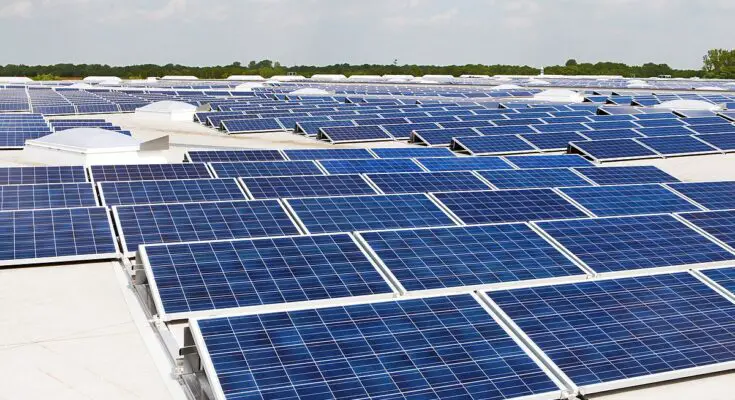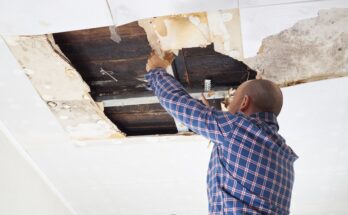Did you know that Americans installed enough solar panels in 2022 to power 22 million homes? While solar energy has plenty of benefits, there are a few different types of solar panels to consider.
Solar panels differ quite a bit from one another. The type of solar panels that you install will be dependent upon the purpose for which they’re being used.
So what’s the difference between residential and commercial solar panels? We’ll be breaking down everything that you need to know below, so keep reading!
The Costs
Residential solar panels cost between $2.00 and $4.00 per watt depending on the size of the system and other factors. A typical 5 kW system can cost around $16,000 including installation.
Commercial solar systems can cost as much as $3.00 to $5.00 per watt or more. An average 10 kW system can cost $50,000 or more. The higher cost is due to the increased size of the system and extra components.
Efficiency and Performance
Residential and commercial solar panels differ in terms of efficiency and performance. It produce a steady stream of energy at a reliable low cost. They generally have a lower wattage output. This makes them less efficient and capable of producing fewer watts per square foot.
Commercial solar panels can generate more power. They operate at higher efficiency than residential panels. These panels are capable of producing more energy to power multiple structures.
They are also designed to cope with the changing needs of businesses. This includes seasonal peaks and on-demand power. This ensures businesses have access to reliable, high-efficiency energy to meet their needs.
Installation
The big difference between residential and commercial solar panel installation lies in the scale of the job. Commercial solar panel installations are often much larger.
It involves a team of highly-trained electricians and other specialized professionals. They will work together to make sure the project is completed.
Residential installations are much smaller and need fewer people. It usually involves installing panels on a roof or other surface. This also includes wiring the panels together and providing mounts for the panels.
Both solar panel installations need specialized knowledge, safety protocols, and attention to detail. It’s important to hire a team of professional and experienced installers. If you’re looking for help to find the best solar installer, look here now!
Durability and Maintenance Requirements
Residential solar systems are smaller in scale and often feature fewer components. They need less maintenance and are more quick and cost-effective to repair or replace.
Commercial solar systems are much larger and consist of more complex components. They tend to be more costly to repair and replace given their size and amounts of exposure to the elements.
In terms of durability, residential solar systems can withstand impacts such as heavy snow or hail. Commercial solar systems tend to be sturdier. They’re designed to withstand the harsher conditions of the commercial environment.
Both types need regular inspection and maintenance. This is to ensure that the system is operating at optimal levels.
Financial Incentives
Residential systems are typically eligible for state-level financial incentives. This can include tax credits and rebates, as well as Federal Tax Credits.
Commercial projects are eligible for financial incentives through tax deductions and accelerated depreciation. Incentives also vary among states and counties. It’s important to check with government offices to know the incentives that you may be eligible for.
Generally, commercial solar projects are eligible for higher incentives than residential projects. This makes it a better investment. While incentives may be different, both solar projects are a fantastic way to save money.
Return on Investment
Returns on investment for residential projects tend to be smaller and more short-term. Commercial solar tends to be more expensive but the potential return on investment can be much larger.
Commercial properties tend to need more advanced hardware and increased technological support. This results in returns over a much longer period of time. The decision on which one is best will depend on the particular needs and goals of the investor.
Regulatory and Permitting Requirements
The regulatory and permitting requirements for residential and commercial solar panels are different. Residential panels typically have simpler and fewer regulations.
Generally, no permits are needed to install residential solar panels. However, depending on where you live, you may be subject to local ordinances or restrictions that must be followed.
Commercial solar panel requirements are more stringent and complex. They often require permits such as building permits, electrical permits, and structural documents.
Additionally, some states require planning permission to be approved by the local authority. In some cases, application fees must also be paid.
It is important to understand the regulations and permitting requirements for both systems. This can help ensure any installation is in compliance with local regulations.
Environmental Impact
Residential and commercial solar panels have a lot in common in terms of environmental impact. Residential solar panels tend to be smaller scale and designed for home use. The environmental benefits are minimal in comparison to commercial solar panels.
On the other hand, commercial solar panels are designed to generate more power. As a result, they can provide more clean energy. They have a much larger impact on the environment.
Know More About the Difference Between Residential and Commercial Today
Understanding the difference between residential and commercial solar panels is essential. You need to weigh the pros and cons of both systems when taking solar power into consideration.
Research both options and evaluate the cost, efficiency, and long-term return on investment. For more information, contact a local renewable energy expert today. They can provide advice on which solar panel installation is best for your needs.
If you found this guide useful, check out our blog for even more informative content!


